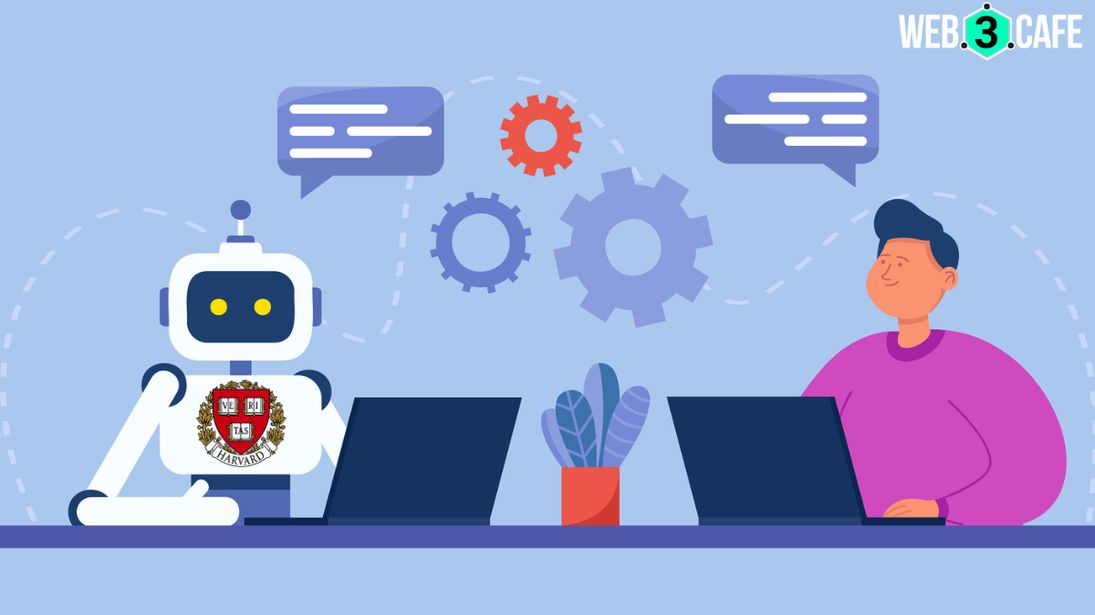Harvard University plans to deploy an AI teacher, a ChatGPT-like bot to teach Computer Science
This Harvard approach involves leveraging OpenAI's advanced GPT 3.5 or GPT 4 models to develop an AI instructor that can provide personalised support to students.
 artificial intelligence
artificial intelligence
Highlights
- The program aims to achieve an impressive teacher-to-student ratio of 1:1
- Computer Science professor at Harvard is optimistic about the future of AI in education
- The decision to adopt AI as an instructor aligns with the growing popularity of AI tools in the educational landscape
The advent of artificial intelligence (AI) has not only transformed various industries, but it is now posing a potential threat to the teaching profession, particularly in the field of coding. With its ability to automate tasks and provide intelligent solutions, AI has made its way into the realm of education.
Harvard University, known for its commitment to innovation, is at the forefront of this integration, planning to introduce an AI chatbot as an instructor in its prestigious Computer Science 50 (CS50) course.
Harvard introduces AI-based instructor in coding course
Harvard's approach involves leveraging OpenAI's advanced GPT 3.5 or GPT 4 models to develop an AI instructor that can provide personalised support to students. Set to commence in September, the program aims to achieve an impressive teacher-to-student ratio of 1:1 in CS50 by harnessing the power of AI. By utilising AI chatbots, students will have access to software-based tools that can enhance their learning experience, catering to their individual preferences and pace.
Harvard’s new computer science teacher is a chatbot.
Students enrolled in the university’s flagship CS50 course will have access to the AI teacher from September.
Here's the breakdown: pic.twitter.com/K3uOMhZrE8 — Alex Banks (@thealexbanks) June 27, 2023
This level of personalised support has been a challenge to deliver on a large scale, making the integration of AI particularly beneficial for both on-campus and remote students. The decision to adopt AI as an instructor aligns with the growing popularity of AI tools in the educational landscape.
The rise of AI in education and concerns around it
OpenAI's ChatGPT, launched in November 2022, has experienced unparalleled success, attracting a staggering 100 million active users within a mere two months. Its versatility in generating code, composing poetry, and even writing essays has captivated users worldwide.
Imagine going to a highly reputed institution and learning from ChatGPT! 🤯
— Gagan Deep Singh (@0xGagan) June 28, 2023
Well, it's true! 💯
Harvard University plans to use an #AIchatbot similar to ChatGPT as an instructor on its flagship coding course.
According to course instructors, the AI teacher will likely be based… pic.twitter.com/4xBSO2yXzT
However, the rise of AI in education does not come without concerns. Accuracy and potential "hallucinations" of AI-generated content have been acknowledged by major players like Google, who recently cautioned users about potential inaccuracies in their AI-powered tools.
.@Harvard wow have you fallen. Who pays to go to Harvard to have a Language Model to teach it? https://t.co/3QxyfjSf3C
— Kristine (@Schachin on Spoutible too) 🇺🇦 (@schachin) June 29, 2023
Just sad to see how little you value teachers and the student teacher experience.
Recognising these limitations, CS50 professor David Malan emphasises the importance of critical thinking skills for students when engaging with AI-generated information. He stresses that students must exercise their own judgment and analysis when evaluating AI-generated content.
Despite these challenges, Professor Malan remains optimistic about the future of AI in education. He highlights the value of feedback from both students and teachers in refining AI capabilities. Active participation and continuous improvement will pave the way for AI to reach its full potential in transforming education.
"@Harvard embraces generative #AI in the classroom, adopting it as an official learning tool for its flagship coding course," @CS50...https://t.co/1IhTAA8TFQ#education #community
— David J. Malan (@davidjmalan) June 23, 2023
In conclusion, Harvard University's integration of an AI chatbot instructor in its CS50 course represents a significant step forward in utilising AI for educational purposes. With careful evaluation, critical thinking, and ongoing refinement, AI has the opportunity to revolutionise education and empower both students and teachers in the ever-evolving digital landscape.


COMMENTS 0